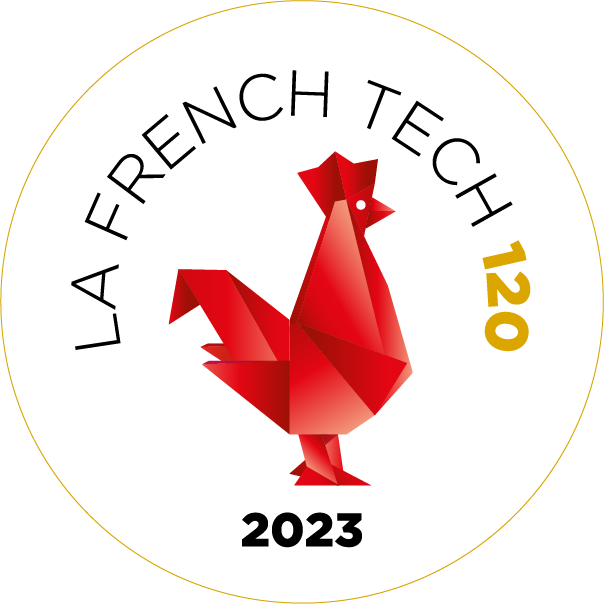How Kinéis helps build space sovereignty in Europe

In today’s New Space race, Europe needs more than innovation. It needs control: over its infrastructure, its data, and its connectivity.
The European Union needs sovereign, reliable and competitive solutions to face the American, Chinese and Russian major companies. New Space isn't just about institutions anymore, and private players are now driving change. With its 100% French-built constellation connecting objects across the globe, Kinéis strengthens Europe’s technological autonomy, delivering a sovereign and secure way to transmit and process critical data.
Three strategic actions at the core of this contribution:
- Technological independence
- Real-world applications in security and environmental monitoring
- Active support for the European space industry.
Technological independence
Kinéis represents a new form of space sovereignty — one built on full control of infrastructure, from end to end. And it’s based on a clear choice: to design, build and operate everything in France.
An end-to-end French-built constellation
Kinéis operates a constellation of 25 nanosatellites, all designed, assembled and tested in France, through partnerships with leading industrial players such as Thales Alenia Space, Hemeria and Comat. It’s a clear demonstration of the capabilities of France’s space industry, capable of delivering a complete, cutting-edge and competitive infrastructure.
The company’s main shareholders are French, from both public and private sectors (including CLS, CNES, BPI France, Thales and BNP Paribas). There are no external technological dependencies.
Effective from June 1, 2025, the Kinéis constellation will provide global IoT coverage. Satellite operations are currently managed from the CNES center in Toulouse, with a dedicated Kinéis control room — fully autonomous and also based in Toulouse — set to take over in 2026.
It’s another step forward in building long-term operational sovereignty.
Data control and protection
Kinéis also owns and operates its entire infrastructure, from the space segment to the ground segment. Finally, data processing and storage are carried out exclusively in France. This is a strong guarantee of the confidentiality of the data collected.
As geopolitical tensions rise, data control is critical. Full ownership of satellites, ground stations and storage gives Kinéis and its customers confidence: their data does not pass through third-party systems operated abroad.
By contrast, relying on constellations operated outside Europe can mean exposure to non-EU infrastructure and foreign legislation— such as the U.S. Cloud Act, which gives American authorities access to data stored by U.S.-based providers, even when involving non-U.S. clients.
For use cases involving security, infrastructure monitoring or environmental response, this kind of dependency can be a real risk.
A sovereign alternative to New Space major players
A few global tech players currently lead the satellite IoT market. Kinéis offers a strong European alternative. Its long-term strategy is clear: build independent infrastructure, enable truly global connectivity, and protect both data and industrial sovereignty.
Kinéis works in synergy with major European programs like Iris², Copernicus and Galileo. Rather than competing with them, it adds value — by bringing the agility and innovation of a private player to Europe’s ambition for long-term space autonomy.
How sovereign infrastructure meets real-world needs
Technology matters. But what matters most are its real-world use cases.
Kinéis does more than link devices. It supports real-time decision-making where it matters most, for example:
- Tracking a ship far offshore
- Detecting anomalies on energy grids
- Spotting wildfires before they spread
And when ground networks go down, like during natural disasters, cyberattacks or large-scale outages, satellites often remain the only way to stay connected.
In these moments, resilient infrastructure isn’t a luxury. It’s a lifeline. That’s why Europe needs systems that are autonomous by design: built to operate reliably when everything else fails.
Security and defense
When it comes to defense, satellite sovereignty becomes even more sensitive.
As geopolitical tensions rise and threats evolve rapidly, independent and reliable communication infrastructure is critical. Kinéis works closely with the French government to design tools that meet the specific needs of defense operations — ensuring secure, autonomous connectivity, available at all times.
Maritime surveillance is one of Kinéis’ most impactful applications. By equipping part of its constellation with AIS (Automatic Identification System) receivers, Kinéis enables ship tracking even in areas far beyond the reach of coastal networks.
This capability supports the monitoring of strategic maritime corridors, helps detect unusual vessel behavior, and enhances situational awareness in otherwise hard-to-access zones.
Keeping critical infrastructure under control
Power lines, railways, pipelines: the systems we all rely on are not immune to disruption. With connected sensors of Kinéis’ partners, these assets can be monitored remotely and any time, even in the most isolated areas.
A sensor placed on a power grid can send real-time alerts in case of unusual vibrations, tilt or impact. That means earlier detection, faster intervention, and lower risks for infrastructure and the people depending on it.
With growing risks, from climate to cyber, ensuring continuity isn’t a nice-to-have. It’s a baseline requirement.
Environmental safety and climate resilience
Forest fires, floods, droughts, pollution… We no longer ask if the next environmental crisis will strike — but when, and where.
Kinéis satellites collect near-real-time data from remote areas, such as forests, agricultural zones, or open seas — places out of reach for conventional telecom networks.
The system captures key environmental signals — temperature, humidity, water levels, wildlife movement — and transforms them into alerts and decision-ready insights.
Kinéis works with CLS to feed environmental data into real-world monitoring tools — used by farmers, water authorities and biodiversity teams on the ground.
Moreover, everything is processed in France. No data goes through foreign platforms. A deliberate choice to ensure that our environment — and the data that protects it — remain under national control.

What makes European space autonomy possible
Built entirely in France, with full control of the value chain
From satellite design to data processing, Kinéis manages every step in-house, with no reliance on foreign suppliers or infrastructure.
Real-world impact across multiple sectors
Whether it’s tracking vessels at sea, monitoring energy networks or detecting environmental risks, Kinéis delivers critical insights where ground connectivity falls short.
A sovereign model designed to scale
Headquartered in France, aligned with Europe’s strategic goals, and already expanding globally, Kinéis shows that technological autonomy and international ambition are not mutually exclusive.
Helping shape Europe’s next-generation space ecosystem
The European space sector is changing: opening up to faster, more agile players without compromising on ambition. Kinéis is part of that shift.
Born out of public research, backed by strong industrial partners, the company shows how a private actor can scale a sovereign infrastructure project and energize an entire ecosystem in the process.
A public-private foundation built to scale
From day one, Kinéis has grown within a stable, purpose-driven alliance:
- CNES, for its scientific and technical expertise
- CLS, its founding partner and long-time operator of the Argos system.
This partnership gave Kinéis a unique position: grounded in public R&D, with the agility to scale. It also helped the company transition from heritage space programs to a new industrial model, one aligned with both national and European priorities.
Kinéis was also selected as part of France 2030, a national investment program supporting breakthrough technologies. A sign that what started as a niche project now plays a strategic role in Europe’s space ambitions.
Driving industry, jobs and local innovation
Kinéis brings momentum to an entire value chain — from major partners like Thales, Hemeria and Comat, to a network of specialized SMEs.
Over 200 engineers and experts have contributed to building the constellation. The company now employs around 60 people, most of them based in Occitanie, a key space region in southern France.
Each satellite launched means new expertise, qualified jobs, and long-term industrial capacity — not just for Kinéis, but for the European space economy as a whole.
From Toulouse to the world: Kinéis enters the global stage
Kinéis demonstrates that sovereignty and openness can go hand in hand.
With active subsidiaries in the U.S. and Brazil, the company is expanding into a fast-growing global market: the satellite IoT sector, valued at $2 billion in 2024 and projected to grow by over 23% annually through 2034.
By offering a reliable, sovereign alternative to the major players, Kinéis positions itself not just as a player in the New Space movement — but as one of the forces shaping its future.
Each new customer, each connected territory, each deployed terminal is part of the same message: France, and Europe, have the means and the ambition to lead.
Others News


About us
Created in 2018, Kinéis is a satellite IoT operator.
© kineis - IoT everywhere - 2023
Contact us
Adress
11, rue Hermès
31520 Ramonville-Saint-Agne
France
Phone
+ 33 5 61 39 47 00
Links
FAQ
Press
Newsletter
News
Privacy Policy
Cookie policy
Sitemap
Let's stay connected














